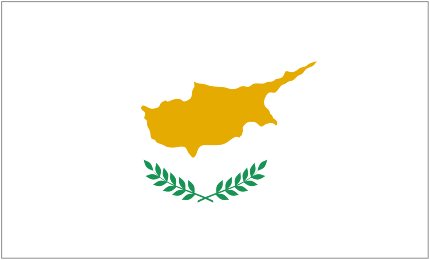

| Diving |
|---|
| Driving In Cyprus |
| Advertise |
Information about Cyprus and its history
People of Cyprus
Cyprus’ colourful history is reflected in the rich cultural life in Cyprus today. Almost every week there is some sort of celebration, a festival, a wedding or a saint’s day (which are celebrated instead of birthdays).
Religious festivals are particularly significant in Cyprus and none more so than the Greek Orthodox Easter. This is the highlight of the religious year and is considered more important than Christmas. On Easter Saturday most Cypriots will be found in the church, attending midnight mass. There is a bonfire with an effigy of Judas outside the church and also fireworks. On Easter Sunday families sit down together to eat the traditional roast lamb lunch.
Springtime is also festival time with all the major towns hosting carnival parades. There are flower festivals with parades of flower-covered floats. The largest carnival is in Limassol, with its many floats, parades and other entertainment.
Kataklysmos is another important festival - the festival of the flood- and there are celebrations in every town, with open-air fetes, games and competitions.
Harvest time is time for the wine festivals, the largest being held in Limassol. Every year thousands of visitors go to the festival to enjoy the large range of food and wine on offer
Arts, Culture and Music of Cyprus
Cypriots are very proud of their cultural heritage, which stretches back more than 9000 years. However, you'll probably find that Cyprus today is more concerned with the events of the last 20 years than those of a millennium ago. The north of the island is busy re-creating itself in the image of Turkey, changing names to Turkish and embracing the life and culture of its northern neighbour. The Republic is also trying to create an independent identity, and many places in the Republic have recently been renamed as well.
Whatever the present-day situation may be, Cyprus is littered with reminders of the island's history. Relics from every era - Greek temples, Roman mosaics and 15th-century frescoes - influence the artists of today. Many villages specialise in a particular artform, and as you travel around Cyprus you'll see pottery, silver and copperware, basket weaving, tapestry and Lefkara's famous lacework.
Like everything else in Cyprus, religion is split along the Green Line. The northerners are mostly Sunni Muslim, the southerners Greek Orthodox. Food, too, reflects the divide: in the North you'll find mostly Turkish cuisine; in the Republic, Greek. But wherever you are in Cyprus, you'll come across kleftiko (oven-baked lamb) and mezedes (dips, salads and other appetisers). Cyprus is also famous for its fruit, which the government protects with a ban on imported products. You'll find strawberries, stone fruit, melons, prickly pear, citrus and grapes.
Economy of Cyprus
The Republic of Cyprus has a capitalist economy dominated by the service sector, which accounts for 76% of GDP. Tourism and financial services are the most important sectors; erratic growth rates over the past decade reflect the economy's reliance on tourism, which often fluctuates with political instability in the region and economic conditions in Western Europe. Cyprus joined the European Exchange Rate Mechanism (ERM2) in May 2005 and could adopt the euro within the next two years. Although sluggish tourism and poor fiscal management have resulted in high budget deficits since 2001, the government is pursuing reforms to trim the deficit. As in the Turkish sector, water shortages are a perennial problem; a few desalination plants are now on-line. After 10 years of drought, the country received substantial rainfall from 2001-03, alleviating immediate concerns. The Turkish Cypriot economy has roughly one-third of the per capita GDP of the south, and economic growth tends to be volatile, given north Cyprus's relative isolation, bloated public sector, reliance on the Turkish lira, and small market size. The Turkish Cypriot economy grew 15.4% in 2004, fueled by growth in the construction and education sectors as well as increased employment of Turkish Cypriots in the Republic of Cyprus. The Turkish Cypriots are heavily dependent on transfers from the Turkish government. Under the 2003-06 economic protocol, Ankara plans to provide around $550 million to the "TRNC." Agriculture and services, together, employ more than half of the work force, especially with tourism growth and the easing of border restrictions with the Greek Cypriots since April 2003.